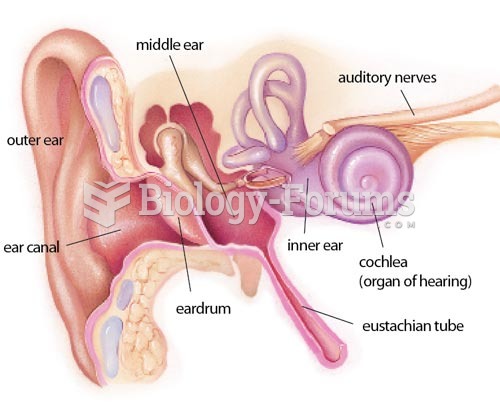|
|
|
The FDA recognizes 118 routes of administration.
Patients who have undergone chemotherapy for the treatment of cancer often complain of a lack of mental focus; memory loss; and a general diminution in abilities such as multitasking, attention span, and general mental agility.
According to the FDA, adverse drug events harmed or killed approximately 1,200,000 people in the United States in the year 2015.
To maintain good kidney function, you should drink at least 3 quarts of water daily. Water dilutes urine and helps prevent concentrations of salts and minerals that can lead to kidney stone formation. Chronic dehydration is a major contributor to the development of kidney stones.
The average human gut is home to perhaps 500 to 1,000 different species of bacteria.







